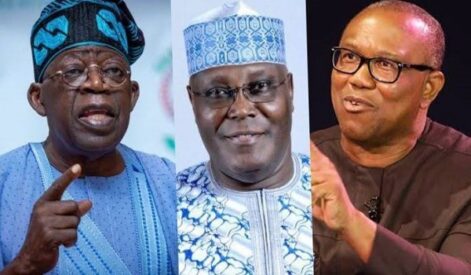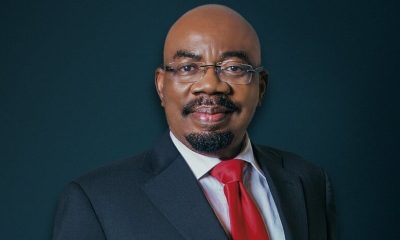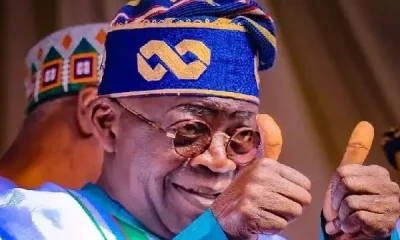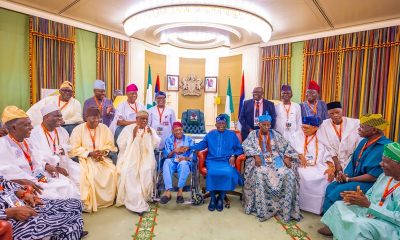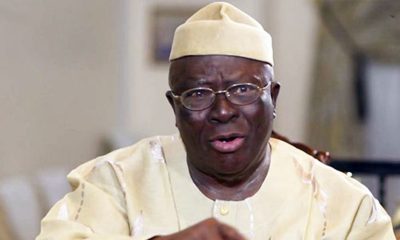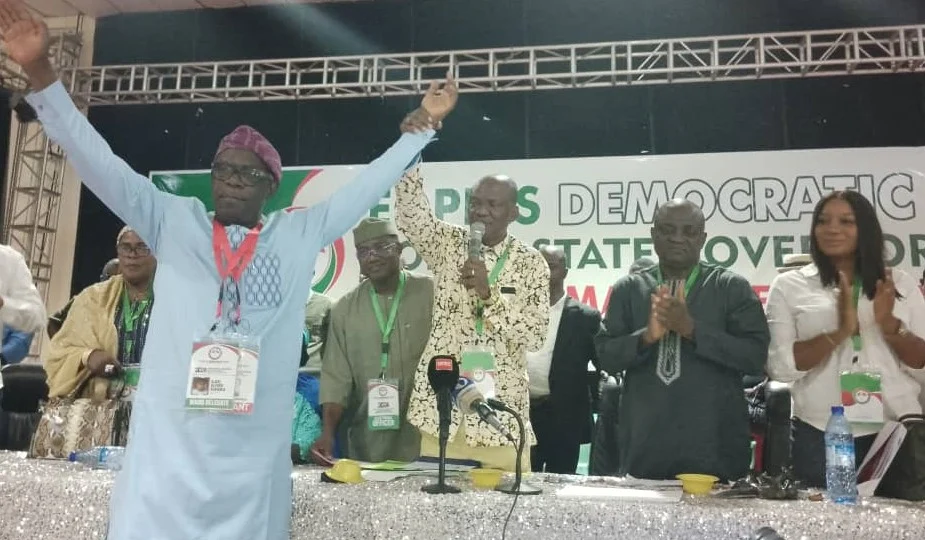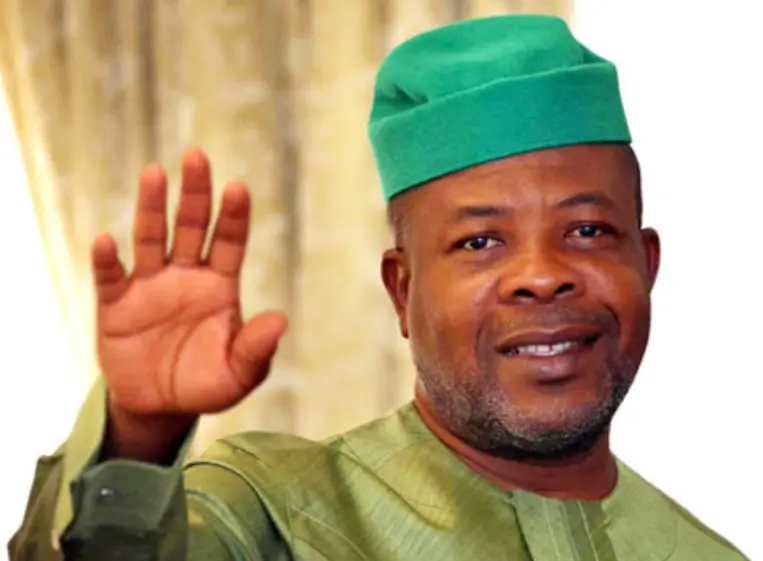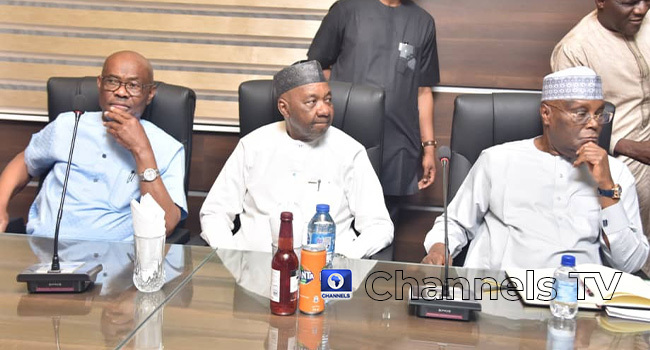Finally, the D-day is upon us! The five-member panel of the presidential election petition tribunal will either set a record or follow the trend.
Since the return of democracy in 1999, no court has ever overturned a presidential election in Nigeria. The winner declared by the Independent National Electoral Commission (INEC) usually triumphs at the tribunal; and even when the case gets to the supreme court, nothing changes.
The presidential tribunal is set to deliver its verdict in a few hours. Some Nigerians are hoping that something different happens, while some pray that luck shines on their preferred candidate
Unlike in the past, the proceedings of the 2023 presidential election petition tribunal have generated a lot of talking points from the inception to the end.
One man — Ahmed Bola Tinubu — has been at the centre of the legal battle at the tribunal. After he was declared the winner of the February 25 presidential election by INEC, opposition parties rejected the outcome of the election.
Atiku Abubakar, candidate of the Peoples Democratic Party (PDP), and Peter Obi, his Labour Party (LP) counterpart, approached the tribunal to challenge Tinubu’s victory.
In a few hours, the tribunal will rule on certain issues that form the pillars of the petitions.
25% IN FCT
One major issue that has generated a lot of talking points since the announcement of the presidential election results is the 25 per cent debate as it relates to the federal capital territory (FCT), Nigeria’s capital.
Tinubu failed to secure 25 per cent of the total votes cast in the FCT — a development that has elicited varied reactions.
According to results declared by INEC, Obi scored the highest votes with 281,717, Tinubu got 90,902 votes, while Atiku came a distant third with 74,199 votes. With the results, only the LP candidate garnered 25 per cent of the votes cast in the FCT.
Both Atiku and Obi had argued that since Tinubu failed to secure 25 per cent of the votes in FCT, he should not be declared the winner of the election.
Their argument is hinged on the provision of section 134 (2) of the 1999 constitution (as amended).
Section 134 (2) says: “A candidate for an election to the office of President shall be deemed to have been duly elected where, there being more than two candidates for the election: (a) he has the highest number of votes cast at the election; and (b) he has not less than one-quarter of the votes cast at the election in each of at least two-thirds of all the States in the Federation and the Federal Capital Territory, Abuja.”
However, Tinubu’s legal team argued that the FCT has no special status in Nigeria’s electoral process.
The presidential tribunal will definitely provide answers to the raging debate of 25 per cent votes in FCT.
‘MANIPULATION OF RESULTS, OVERVOTING’
A woman casting her votes at a polling unit
The tribunal will also determine whether the petitioners — Atiku and Obi — provided enough evidence to support their claims of alleged manipulation, overvoting, suppression of votes, mutilations, cancellations and overwriting on result sheets, and manipulation of BVAS machines, among other alleged infractions.
The five-member panel will also decide whether the alleged infractions cited by the petitioners are enough to overturn Tinubu’s victory.
The petitioners had raised a number of issues on the conduct of the election by the umpire.
DELAY IN ELECTRONIC TRANSMISSION OF RESULTS
INEC ad hoc
An electoral officer with BVAS machine
In the build-up to the 2023 election, INEC promised Nigerians that results at polling units will be immediately uploaded to its resulting viewing portal (IReV)
However, during the presidential election, the commission failed to instantly upload results to IReV.
Owing to the incident, petitioners asked the tribunal to decide whether INEC complied with the provisions of the Electoral Act of 2022 and its guidelines on the electronic transmission of election results.
ALLEGED DOUBLE NOMINATION
Shettima
The nomination of Kashim Shettima as Tinubu’s running mate is also one of the issues at stake at the presidential tribunal.
Petitioners alleged that Shettima was still the APC’s candidate for Borno central senatorial district when he accepted the nomination to be Tinubu’s running mate.
But APC argued that the vice-president had resigned as the party’s senatorial candidate before the presidential primary.
In May, the supreme court ruled that Shettima was not guilty of double nomination.
ALLEGED PERJURY ON AGE, DUAL CITIZENSHIP
Tinubu
Prior to the February 25 election, the exact age of Tinubu was a controversial issue. But Tinubu said his record is consistent.
At the presidential tribunal, petitioners argued that the alleged inconsistency in Tinubu’s age made him unqualified to contest for the position of president.
Another issue was the debate on dual citizenship. Tinubu was said to have voluntarily acquired the citizenship of the Republic of Guinea.
Petitioners had tendered a document purported to be Tinubu’s Guinean passport to support the claim of dual citizenship.
Petitioners had also argued that the declaration of Tinubu as the winner of the presidential election was invalid because of his alleged dual citizenship.
‘FORGED CERTIFICATE’
The authenticity of Tinubu’s academic records is another issue that will be determined by the tribunal.
Tinubu’s credentials showed that he graduated from Chicago State University (CSU) in 1979 with a bachelor’s degree in business administration, accounting and management.
However, there have been allegations bordering on discrepancies with Tinubu’s certificate. At the tribunal, petitioners raised issues on alleged discrepancies in the certificate.
Recently, Atiku approached a US court for the northern district of Illinois in Chicago for an order compelling CSU to release Tinubu’s academic records.
ALLEGED DRUG CONVICTION
This is arguably the biggest issue at stake at the presidential election tribunal. Many Nigerians are keen to know the verdict of the tribunal on the issue.
At every point in Tinubu’s political journey, the issue of an alleged drug conviction involving the former Lagos governor in the United States has always resurfaced.
The petitioners said the alleged forfeiture of $460,000 by Tinubu as a fine for narcotics trafficking imposed by a US court on the president in 1993 makes him unqualified to contest for the election.
The forfeiture case has elicited reactions on whether forfeiture is the same thing as conviction.
The tribunal will definitely provide answers to the issue of whether the forfeiture of the funds amounts to a criminal conviction for drug trafficking.

 News3 years ago
News3 years ago
 Entertainment2 years ago
Entertainment2 years ago
 News3 years ago
News3 years ago
 Privacy3 years ago
Privacy3 years ago
 Sports2 years ago
Sports2 years ago
 Entertainment2 years ago
Entertainment2 years ago
 News3 years ago
News3 years ago
 Opinion3 years ago
Opinion3 years ago
